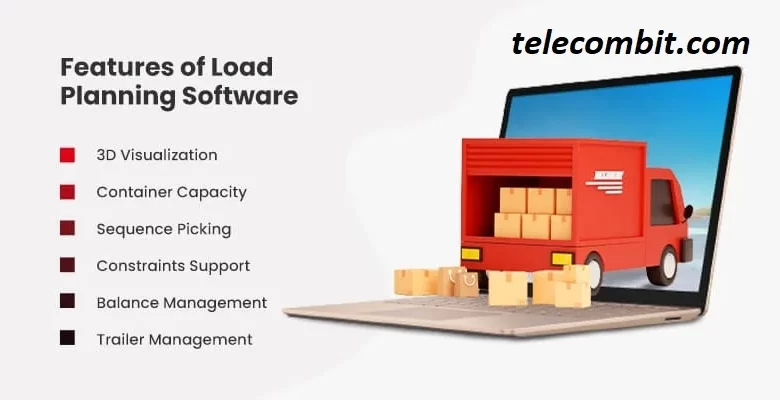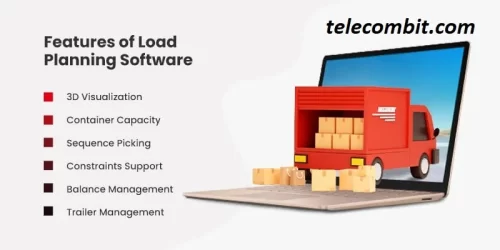Revolutionizing Logistics: The Power of Load Planning Software

In the fast-paced world of logistics, efficiency is the key to success. The ability to streamline operations, optimize routes, and maximize resource utilization can make a significant difference in the profitability of logistics companies. One powerful tool that is revolutionizing the industry is load planning software. By harnessing the capabilities of advanced algorithms and data analytics, load planning software is transforming the way logistics companies manage their operations.

Understanding Load Planning Software
Load planning software is a sophisticated technology that enables logistics companies to effectively manage and optimize the loading of trucks, trailers, and containers. It takes into account various factors such as weight limits, cargo dimensions, delivery schedules, and transportation regulations to create the most efficient loading plans. By automating the load planning process, this software eliminates the guesswork and manual effort involved, saving time and reducing errors.

Benefits of Load Planning Software
Enhanced Efficiency: Load planning software optimizes the use of available space by arranging cargo in the most space-efficient manner. It considers the weight distribution and stability of the load, ensuring safe and secure transportation. By maximizing load capacity, logistics companies can minimize the number of trips and reduce fuel consumption, leading to significant cost savings.
Improved Resource Utilization: Efficient load planning minimizes the risk of underutilized or overloaded vehicles. By balancing the load across trucks, trailers, or containers, companies can utilize their resources effectively, reducing idle time and increasing productivity. This leads to improved operational efficiency and a higher return on investment.
Real-time Visibility and Tracking: Load planning software often integrates with GPS and telematics systems, providing real-time visibility and tracking of shipments. This enables logistics companies to monitor the progress of each delivery, anticipate delays or bottlenecks, and proactively address any issues that may arise. Real-time tracking enhances customer satisfaction by providing accurate and up-to-date information about the status of their shipments.

Key Features of Load Planning Software
Intelligent Algorithms: Load planning software employs advanced algorithms that consider multiple variables to generate optimal loading plans. These algorithms take into account factors like weight, dimensions, fragility, and compatibility of different items. By analyzing these variables, the software ensures that the load is balanced, minimizing the risk of damage during transit.
Scenario Simulation: Load planning software often includes scenario simulation capabilities, allowing logistics companies to evaluate different loading configurations and assess their impact on efficiency and profitability. This feature enables companies to make informed decisions, experiment with various strategies, and choose the most effective loading plans.
Integration and Collaboration: Load planning software can integrate with other logistics management systems, such as warehouse management systems or transportation management systems. This integration facilitates seamless collaboration between different departments and enhances overall supply chain visibility. The software can exchange data in real-time, enabling efficient coordination and reducing manual data entry errors

Case Study: Company XYZ’s Success Story
Company XYZ, a leading logistics provider, implemented load planning software to optimize their operations. By leveraging the power of load planning algorithms, they achieved remarkable results. Their fleet utilization improved by 20%, reducing the number of vehicles on the road and lowering fuel consumption. Additionally, the software enabled them to deliver shipments faster, resulting in improved customer satisfaction and increased repeat business.

Future Trends and Challenges
The future of load planning software holds great potential. Advancements in artificial intelligence and machine learning are expected to further enhance the capabilities of load planning algorithms, enabling companies to handle more complex load planning scenarios with greater accuracy. Furthermore, the integration of Internet of Things (IoT) devices and sensors in logistics operations will provide real-time data on factors like weight, temperature, and humidity, allowing load planning software to make more informed decisions.
However, along with the promising future, there are challenges that need to be addressed. One such challenge is the complexity of data integration from multiple sources. Logistics companies often have diverse systems and platforms, making it essential for load planning software to seamlessly integrate with these existing systems to ensure smooth operations.
Another challenge is the need for ongoing updates and maintenance of load planning software. As regulations, routes, and customer requirements evolve, the software must be regularly updated to adapt to these changes. Additionally, the accuracy and reliability of the underlying data play a crucial role in the effectiveness of load planning software. Therefore, logistics companies must ensure the quality and integrity of the data they input into the software.

Conclusion
In the ever-evolving world of logistics, load planning software is transforming the industry by revolutionizing how logistics companies manage their operations. With its ability to optimize resources, improve efficiency, and provide real-time visibility, load planning software empowers companies to deliver goods more effectively while reducing costs.
As technology continues to advance, load planning software will become even more powerful, enabling logistics companies to handle increasingly complex challenges and scenarios. By embracing this innovative solution, logistics companies can stay ahead of the competition, streamline their operations, and deliver exceptional customer experiences in the dynamic world of logistics.




